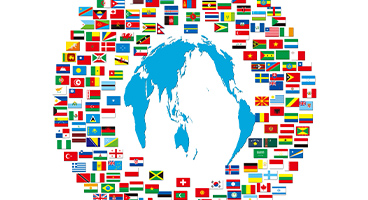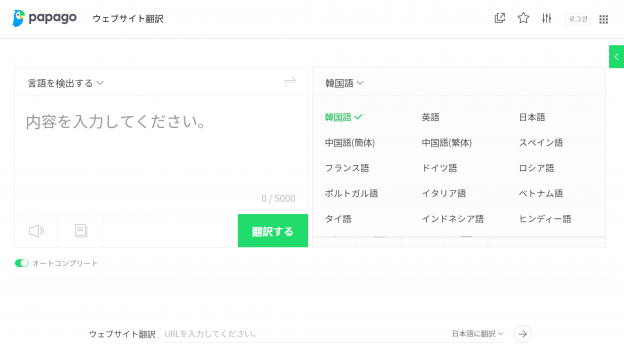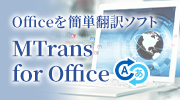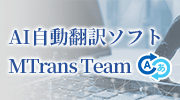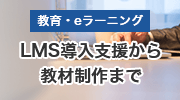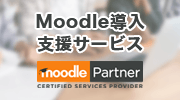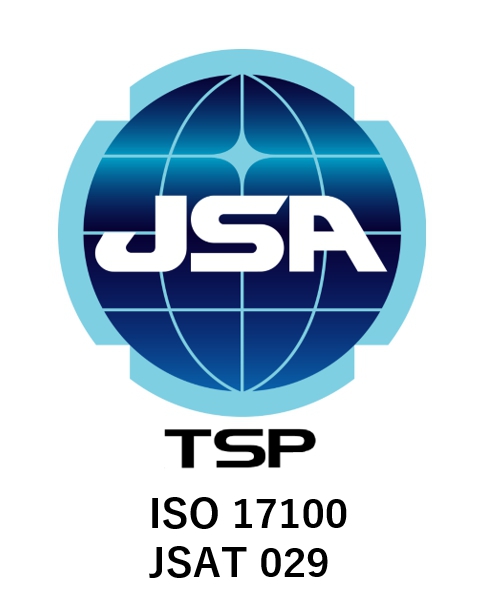
- Table of Contents
1. Advantages and Disadvantages of Outsourcing Translation
There are several benefits to using translation services through outsourcing.
1. Do Not Burden Internal Operations
Translation work is generally specialized and time-consuming. In particular, accurate translation requires skilled expertise, taking into account technical terms and cultural differences. When translation work is done in-house, employees end up spending a lot of time on translation, which reduces the time they can focus on their own areas of expertise.
By outsourcing translation, in-house employees are freed from translation tasks and can focus on their areas of expertise. This allows employees to concentrate on their work and hone their skills, leading to improved operational efficiency. Additionally, by enabling employees to focus on their areas of expertise, overall productivity within the company also increases.
2. High Quality
Translation companies that specialize in translation employ experienced professional translators. These translators have many years of translation experience and have honed their expertise and skills, ensuring high-quality translations. Translators do not simply convert words accurately; they also consider cultural differences and nuances to find expressions suitable for the target language. Therefore, by requesting translations from a translation company, one can obtain translations of much higher quality than if using their own resources.
In addition, the translation company has established a quality management system. This ensures that consistent quality is maintained throughout the translation project. An example of the quality management system is the "double-check" process, where the translated text completed by the translator is reviewed by another worker known as a reviewer or checker. This allows for the identification and correction of any mistranslations or unnatural expressions that the translator may have overlooked. Furthermore, the translation company understands the skills and areas of expertise of its translators, allowing for the assignment of the appropriate translator to each project. This ensures that even translations requiring specialized knowledge are handled by the right translator, maintaining high quality.
There are international standards for quality management and service provision, known as the ISO for translation. The ISO for translation refers to the quality standards for translation services established by the International Organization for Standardization (ISO). In particular, ISO 17100:2015 is a widely recognized international standard in the translation industry, which sets forth the requirements to ensure the quality of translation services.
ISO 17100:2015 specifies quality management throughout the entire translation process, establishing clear standards for various elements related to translation services, such as the qualifications and experience of translators, management of translation projects, and quality assurance processes. Translation companies operating in accordance with these standards are guaranteed to provide translation services of a certain quality level or higher.
Obtaining ISO 17100:2015 certification for a translation company serves as evidence that the company has established a quality management system in accordance with international standards. Therefore, when outsourcing translation, choosing a translation company that has obtained ISO 17100:2015 certification is expected to provide higher quality translation services.
3. Can also translate languages other than the main languages
Translation companies often cater to a wide range of translation needs, not only for major languages such as English, Chinese, and Spanish, but also for minor languages including those from Southeast Asia and Africa.
This advantage is crucial for supporting the global expansion of businesses. When entering markets around the world, communication tailored to the local language and culture is essential. By outsourcing to providers that can handle diverse languages, companies can approach new markets more smoothly. If translation is done in-house, it is necessary to hire staff who can handle minor languages, but outsourcing can reduce that cost.
4. Layout Adjustment Support
By outsourcing translation projects to external experts, you can receive not only translation services but also adjustments related to document design and layout. DTP and layout adjustments are important processes to ensure that the translated document looks professional and appealing, but these tasks require specialized knowledge and skills, which can be difficult to manage in-house. By outsourcing, you can entrust such specialized tasks to experienced professionals and obtain high-quality translated documents.
It is common for a translation company's team to include DTP operators. DTP operators are specialists in desktop publishing (DTP) and play a role in formatting and laying out the translated text to ensure that documents look professional and appealing. DTP operators are required to be proficient in various software and tools, and to faithfully reproduce the translated text in accordance with the original design and style.
DTP operators can handle different languages and writing systems. For example, when dealing with languages that have unique writing systems and formats, such as Arabic, special knowledge and skills are required. DTP operators at translation companies possess the experience and skills to handle such languages, allowing businesses to confidently entrust their translation projects.
5. Support for Specialized Terminology (Varies by Company)
Translation companies often have translators who are well-versed in specific industries or fields, allowing them to provide accurate and appropriate translations by leveraging their expertise. This is a significant advantage in ensuring a high quality of translation that cannot be achieved when translating in-house.
In addition, the translation company can handle translation projects across various industries and fields, allowing for the implementation of the most suitable translation methods and quality management according to the translated documents. This is expected to facilitate the progress of translation projects and improve translation quality.
On the other hand, the disadvantages of outsourcing are as follows.
1. The quality of the translation can vary depending on the translator
There may be differences in the quality and style of translations depending on the translators at the translation company. This is influenced by the translator's experience, skills, and understanding of the translation. It is necessary to choose a translation company that has a system in place to provide consistent quality, such as obtaining ISO 17100:2015 certification.
2. Not All Translators Are Familiar with Every Industry or Field
Translators are not necessarily well-versed in every industry or field. Therefore, when requesting translations that require specialized knowledge in a specific industry or field, it can be challenging to find a translator with the appropriate expertise. Many translation companies have their own areas of specialization and employ translators who are experts in those fields. It is important to request services from the right translation company.
3. There is a risk of information leakage
When requesting documents containing confidential information from external translators, there is a risk of information leakage. There is a possibility that the translator may use the information for improper purposes or leak it to third parties, so measures such as non-disclosure agreements are necessary. In general, non-disclosure agreements are established not only between the translation company and the client but also between the translation company and the translator.
4. Costs Incurred
When outsourcing translation, there are fees to be paid to the translation company. Translation costs can vary depending on the amount and difficulty of the text being translated, as well as the urgency, making it difficult to set a budget. Additionally, some translation companies may charge fees or additional costs, which can lead to expenses being higher than expected. If translation needs arise over a long period, these costs can accumulate, resulting in a significant financial burden. It is necessary to compare the costs of having in-house translators or a translation department with the costs of outsourcing.
5. Time Consuming
When outsourcing translation, it may take time to communicate with the translation company and adjust deadlines. Interactions with the translation company include requesting estimates, confirming translation content, and requesting revisions. If these processes take time, the duration until the translation is completed will be extended. This creates a risk of delaying the overall project schedule.
6. Regularly outsourcing prevents the accumulation of knowledge and know-how within the company
By outsourcing translation, it becomes difficult to accumulate translation knowledge and know-how within the company. As a result, there may be instances where the company cannot respond when translation is needed. Additionally, it may become challenging to manage the quality of translations internally.
2. Points to Consider When Outsourcing Translation
When outsourcing translation to a translation company, it is important to consider the following points.
1. Whether the company supports the language you want to translate
Before requesting a translation company, first check if the company supports the language you want to translate. If there are languages that are not supported, you will need to consider another translation company. Additionally, pay attention to translation quality, and it is advisable to choose a translation company that specializes in specific language pairs.
2. Whether the translation company has a track record in the field of the document to be translated
Translation companies each have their areas of expertise. For example, in specialized fields such as IT, medical/pharmaceutical, industrial/manufacturing, and patents, it is important to choose a translation company with a proven track record in that field. A translation company with a track record can ensure the accuracy of terminology and expressions, leading to high-quality translations.
3. Native Check System
To enhance translation quality, a native check is essential. A native check involves having a native speaker of the target language review the translated document to ensure that the grammar and expressions are natural. When translating from English to Japanese, a native Japanese speaker checks the work, and when translating from Japanese to English, a native English speaker performs the check. When requesting services from a translation company, be sure to confirm whether they have a native check system in place. A translation company that conducts native checks will provide more natural and appropriate translations.
By considering the above points when choosing a translation company, you can obtain high-quality translations. It is also important to confirm deadlines and costs in advance and select a translation company that meets your company's needs.
3. Summary
The benefits of outsourcing translation include reducing the burden of in-house operations, expecting high-quality translations, and the ability to handle translations in languages other than the main ones, layout adjustments, and specialized terminology. On the other hand, the disadvantages include variations in the quality of work by translators, limited specialized knowledge, risks of information leakage, cost burdens, potential extensions of project timelines, and difficulties in accumulating internal knowledge. When choosing a translation company, it is important to check their supported languages, track record in specialized fields, native checking systems, and to understand deadlines and costs in advance.
If you are handling translations in-house, utilizing translation assistance tools (CAT tools) is essential. By implementing CAT tools, you can improve the efficiency of translation work, enhance translation quality, and reduce costs. For more details, please see the blog article below.
Blog article "What are CAT tools? Explanation of advantages and disadvantages"
Our company provides translation services in the IT, medical/pharmaceutical, and industrial/manufacturing fields. Please feel free to contact us if you are considering outsourcing your translation needs.
Related Services
Localization






